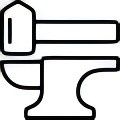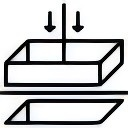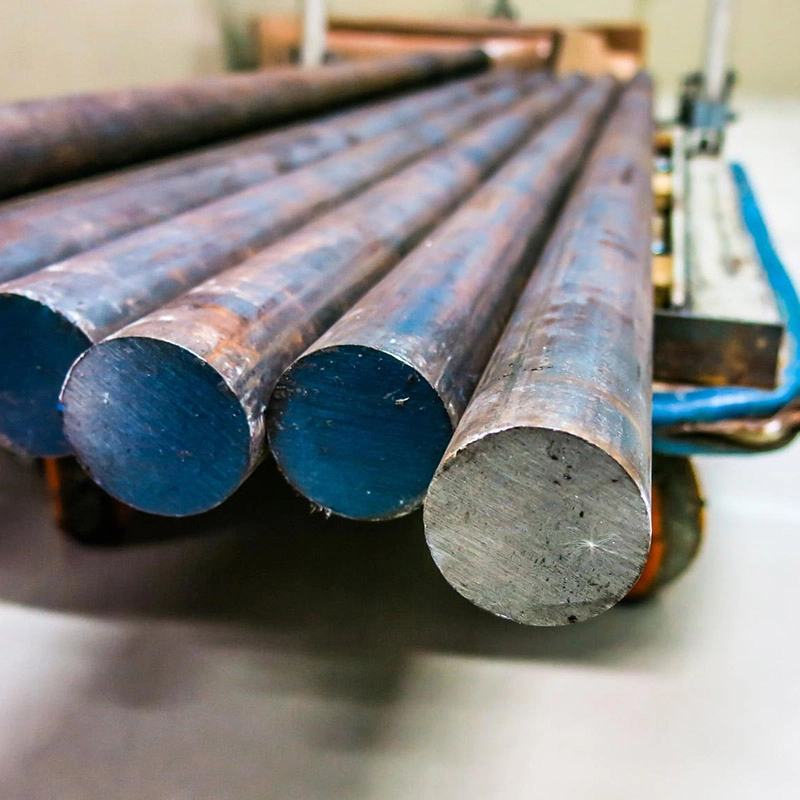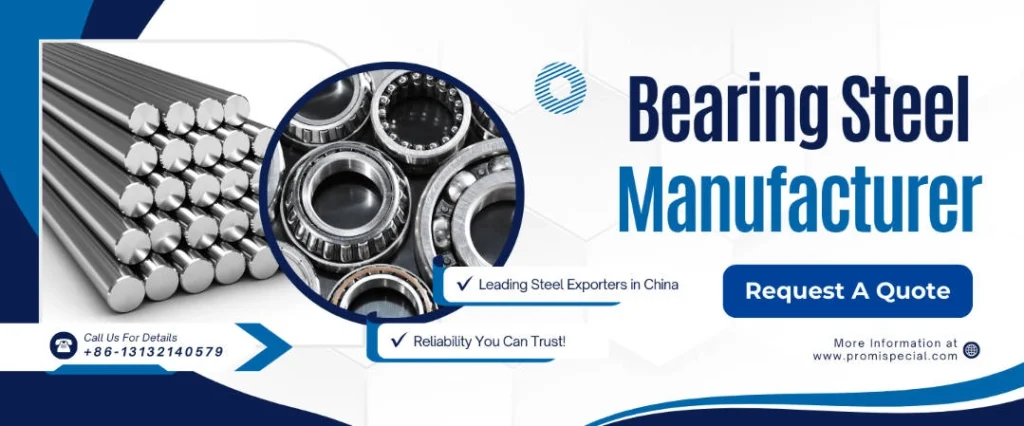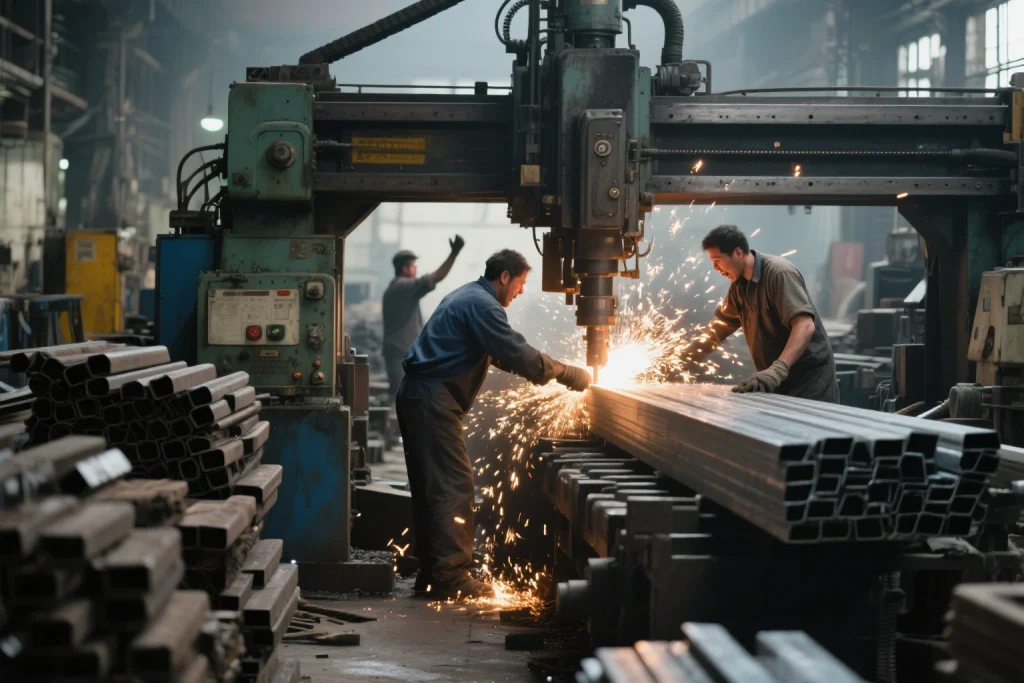
Steel is a product that can be used in many industries. It supports modern industry in countless ways. Among its many types, special steel and superior steel are notable. They have unique qualities and uses. These materials are crafted to meet specific needs. They provide improved traits vital for advanced manufacturing and engineering fields.
What Are Special Steel and Superior Steel?
Special Steel
Special steel refers to alloyed steel grades designed with specific chemical compositions and processing techniques to meet stringent requirements for strength, hardness, corrosion resistance, or heat resistance. These steels are essential in high-performance applications across automotive, aerospace, and tooling industries.
Superior Steel
Superior steel, however, is a top-tier grade of steel. It boasts better qualities like power, durability, and ease of shaping. It’s often used in key parts where dependability and long life are critical.
Common Types of Special Steel
Special steel includes various kinds designed for specific purposes:
- High-Speed Tool Steel (HSS)
High-Speed Tool Steel(HSS) is an advanced tool steel. It’s known for great hardness, wear resistance, and heat resistance. First created by F.W. Taylor and M. White in 1898, HSS changed the cutting tool world. It offers materials that keep cutting ability at high temperatures. This trait, called red hardness, lets HSS tools work well at much higher speeds than carbon steel tools. - Powder Metallurgy High-Speed Steel (PM HSS)
This type marks a big step forward in tool steel technology. It uses powder metallurgy (PM) methods. PM HSS has better qualities than standard high-speed steels. It’s valued for its outstanding hardness, wear resistance, and toughness. - Heat Resistant Steel
This is a specially designed alloy. It’s built for use in high-heat settings. The material can handle ongoing heat while keeping its strength and structure. - Gear Steel
Gear Steel is a high-strength, wear-resistant alloy steel designed for gear manufacturing, widely used in automotive transmissions and heavy-duty machinery.After proper heat treatment, it shows great strength, hardness, and durability.
Common Types of Superior Steel
Superior steel covers advanced grades for tough uses:
- Alloy Structural Steel
To make high-quality alloy structural steel, various furnaces are used. These include basic oxygen, open-hearth, and electric arc furnaces. Improved refining steps like electroslag remelting and vacuum degassing boost steel quality. This ensures consistency and accuracy in structural parts. - High-Temperature Bearing Steel
Promispecial® high-temperature bearing steel is carefully crafted. It shines in extreme conditions. It contains strong elements like chromium and molybdenum. These give it excellent hardness and wear resistance at high temperatures. - Spring Steels
These include:
- High-Quality Carbon Spring Steel
High purity and consistency ensure top performance and long life. - Alloy Spring Steel
Better physical traits like tensile strength, flexibility, and fatigue resistance make it perfect for active uses.
Applications and Usage
The unique features of special steel and superior steel fit many industrial needs. Promispecial® provides a full range of high-performance steels tailored to precision manufacturing, die-casting, power generation, automotive, and heavy equipment industries.
Common Uses of Special Steel
- Cutting Tools
High-speed tool steels are common in making cutting tools. They stay sharp even at high temperatures. - Automotive Components
Gear steels are vital for crafting strong gears for vehicles. - Heat-Resistant Applications
Heat-resistant steels are used in fields like power generation. Parts must endure extreme heat there.
Common Uses of Superior Steel
- Aerospace Industry
High-temperature bearing steels are key in aerospace engineering. They perform well under tough conditions. - Construction Machinery
Alloy structural steels give the needed strength for heavy equipment. - Dynamic Systems
Alloy spring steels are crucial for systems facing repeated stress or impact.
These materials show progress in metallurgy. They tackle varied industrial challenges with custom solutions.
Classification and Standards
National Standards for Special Steel
Special steel follows strict national rules. These ensure it’s fit for unique tasks. The rules set the chemical makeup, physical traits, and production methods needed. For example, gear steel is a high-quality type made for gears. After heat treatment, it shows great strength, hardness, and toughness. Likewise, heat-resistant steel is a custom alloy for high-heat settings. These materials are thoroughly tested to meet industry needs.
National Standards for Superior Steel
Superior steel faces even tougher national standards and rules. This is due to its advanced uses. These rules focus on strength, ease of shaping, and long-term dependability. For instance, Promispecial® high-temperature bearing steel is carefully made. It excels in extreme conditions, ideal for aerospace and industrial heating gear. Also, alloy structural steel goes through refined processes like electroslag remelting and vacuum degassing. This ensures consistency and precision.
Chemical Composition and Properties
Chemical Makeup of Special Steel
Special steel has unique chemical blends for specific uses. For example, high-speed tool steel (HSS) is known for great hardness, wear resistance, and heat resistance. Elements like tungsten, molybdenum, chromium, and vanadium boost its red hardness. Similarly, powder metallurgy high-speed steel (PM HSS) uses advanced alloy methods. This achieves better toughness and durability.
Heat-resistant steels depend on careful blends of nickel and chromium. These withstand long exposure to high heat. The material handles ongoing heat loads while keeping strength and structure.
Chemical Makeup of Superior Steel
Superior steel uses advanced elements like silicon, manganese, chromium, vanadium, and molybdenum. These create better qualities. For example:
- Alloy Structural Steel
Refined processes like electroslag remelting improve its chemical consistency. - High-Temperature Bearing Steel
Chromium and molybdenum are key in Promispecial® high-temperature bearing steel. They provide great hardness and oxidation resistance at high heat. - Alloy Spring Steel
Silicon boosts tensile strength. Manganese improves fatigue resistance.
Comparing Mechanical Properties
The physical traits of special steel are tuned for durability in specific settings:
- High-Speed Tool Steel (HSS)
It keeps cutting ability at high speeds due to red hardness. - Gear Steel
It shows great strength, hardness, wear resistance, and toughness after heat treatment.
Superior steels offer wider flexibility with better traits:
- High-Temperature Bearing Steel
It has excellent contact fatigue strength. This lets it perform reliably in tough settings. - Alloy Spring Steels
They show top tensile strength, flexibility, and fatigue resistance.
Both types excel in their areas. Yet, superior steels often have higher performance due to advanced methods.
Promispecial® offers a wide range of special and superior steel products. They’re made to meet tough industrial needs. Whether you need cutting-edge high-speed tool steels or strong high-temperature bearing steels, Promispecial® ensures top quality. We use advanced manufacturing methods. Contact us and check out our product line today. Find the perfect solution for your engineering challenges!
FAQ
Q: How do national standards define special steel?
A: National standards for special steel set strict rules. They cover chemical makeup, physical traits, and production methods to ensure it’s fit for unique tasks, like gears or heat-resistant uses.
Q: Are the standards for superior steel different?
A: Superior steel faces tougher national rules. These focus on strength, ease of shaping, and long-term dependability to suit advanced uses, like in aerospace or heavy equipment.
Q: What are the main applications of superior steel in manufacturing?
A: Superior steel is used in precision components, heavy machinery, aerospace parts, and high-performance springs due to its excellent mechanical strength, fatigue resistance, and thermal stability.


